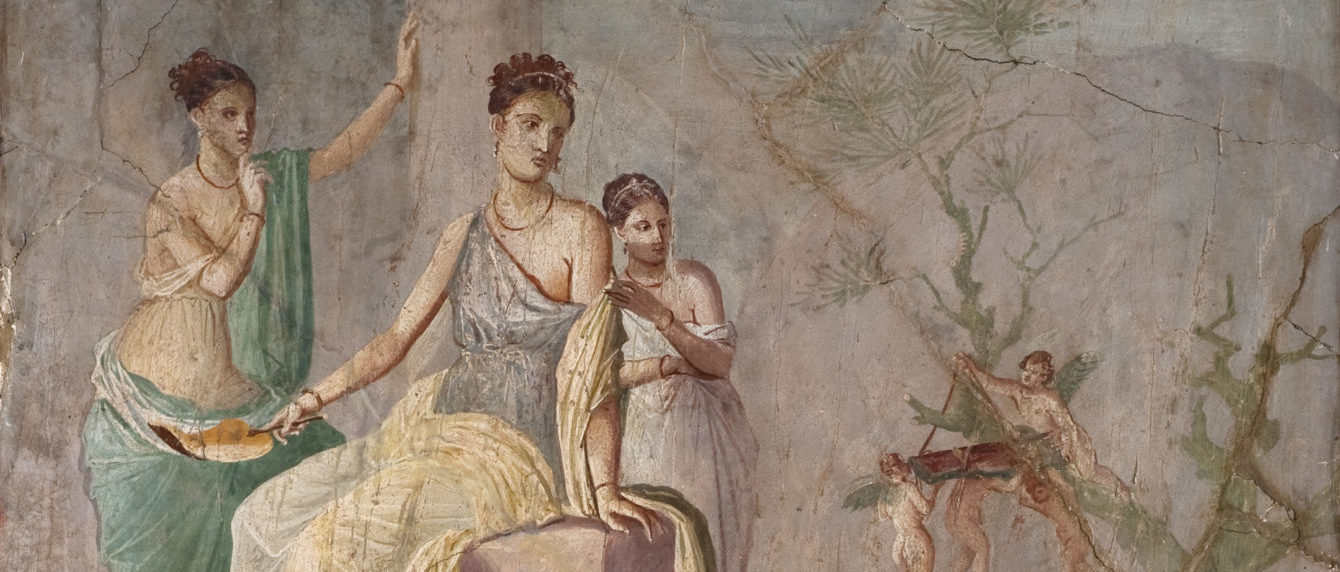Livia: First Empress of Rome
Posted on 19th May 2021
Livia, wife of the Emperor Augustus was loved by her people but feared by those who knew her. She was cunning, manipulative, ruthless and according to some a murderer but as the devoted partner of the Emperor Augustus she came to be the model of Roman womanhood – she was one of the most powerful women ever to have lived.
Born Livia Drusila on 30 January 59 BC, into the Roman Aristocracy as one of the Claudian Clan she was made aware of her exalted status from an early age and adopting the airs and graces deemed appropriate was quick to let everyone else know of it too.
Although, she may have she displayed little acumen for learning she was considered a bright child if a somewhat haughty and arrogant one who did not suffer fools gladly being cold to her friends and it was said cruel towards her servants and slaves.
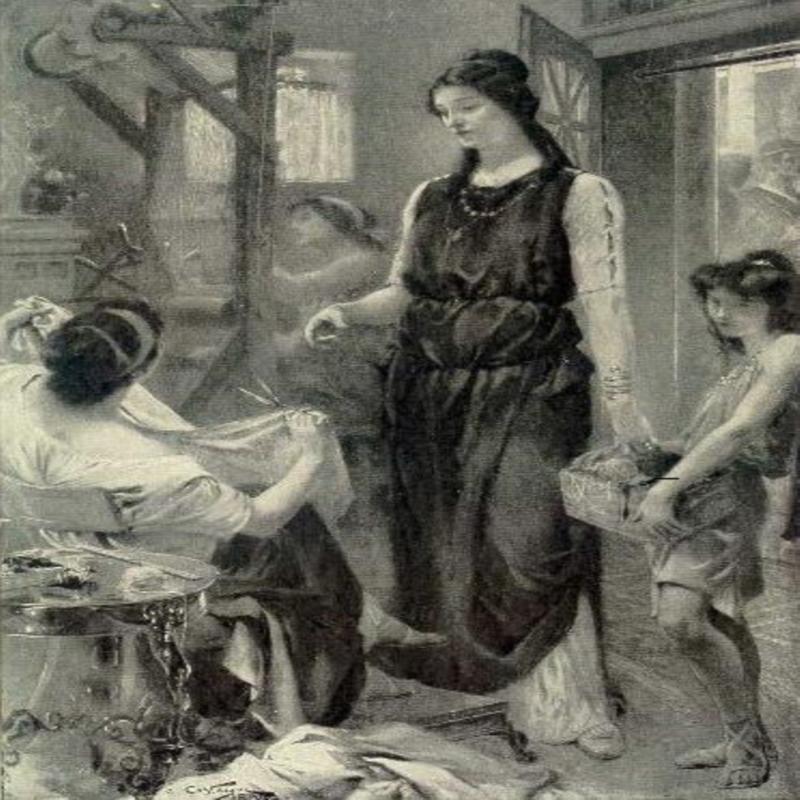
Physically she was slim and diminutive and not the full-figured woman considered attractive in Roman society though she was pretty enough; but then her status alone made her desirable and family her value to the family as a prospective bride was immense. So at the age of just 15 she was married to the wealthy Senator Tiberius Claudius Nero, a year later giving birth to her first son, Tiberius.
Both her husband and her father Marcus Claudianus supported Pompey Magnus in his war with Gaius Julius Caesar for control of Rome. It was to prove a mistake for in the ensuing conflict Pompey was defeated and the entire family found themselves on the run. This was to prove the most traumatic period in the young Livia's life.
Hiding in the Greek hinterland the family were forced to sleep rough and forage for food as they fled from village to village in constant fear for their lives. Indeed, while seeking shelter in Sparta she was almost killed in a forest fire only escaping by the skin of her teeth with Tiberius in her arms and her cloak on fire.
Eventually Caesar announced a General Amnesty and spared further punishment the family returned to Rome. But as Caesar was soon to learn such leniency did not guarantee loyalty and both Tiberius Claudius Nero and Marcus Claudianus conspired in Caesar's assassination on the Ides of March (15 March) 44 BC – yet again, they had chosen the wrong side.
Caesar's assassins, Brutus and Cassius, were forced to flee Rome by his right-hand man Mark Antony who along with the late dictator’s great-nephew and anointed successor Octavian, pursued them to Greece where they were defeated at the Battle of Philippi.
This time there was to be no promise of amnesty and while Livia's father committed suicide her husband took the less honourable course of changing sides. In the meantime, Livia was left to fend for herself.
Alone in Rome she did not flinch and behaved as if nothing had happened. She still had her name and her beauty after all, and she knew how to use both. Regardless of how perilous her situation was she was still Livia Drusila of the Claudian Clan.
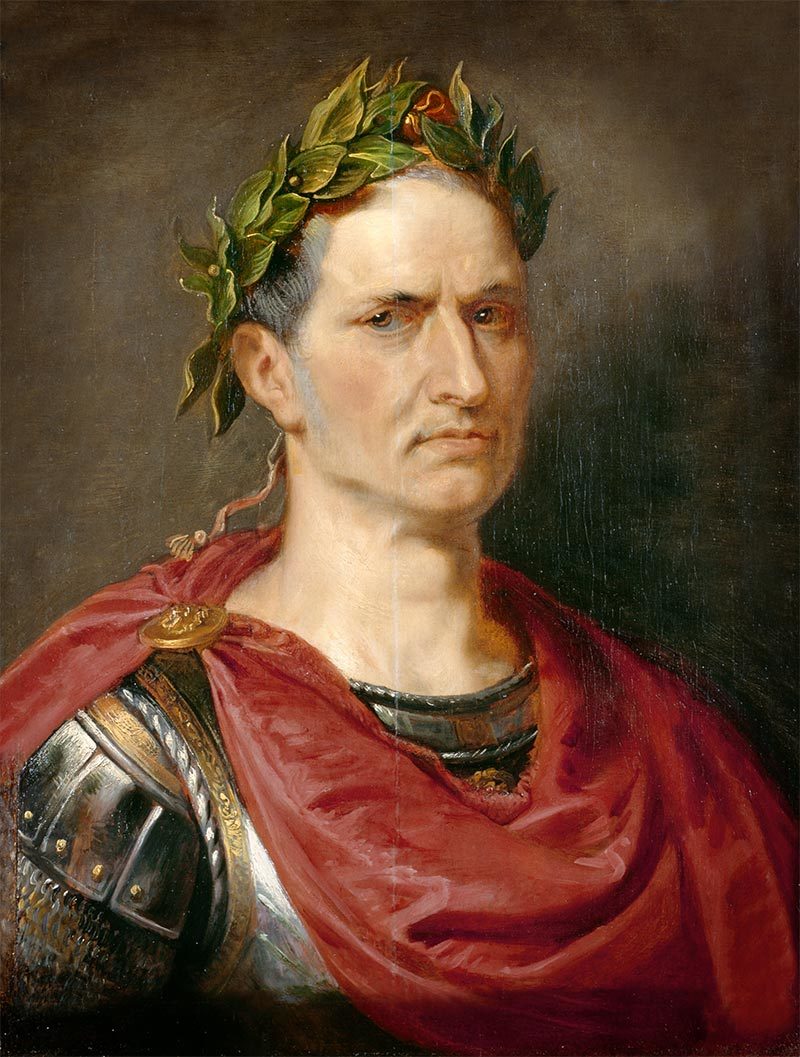
IIn the early winter of 39 BC, she was introduced to Octavian the future Emperor Augustus, a cold, calculating young man not of a romantic disposition or given to outpourings of emotion. Even so he appeared smitten with Livia from the first time he met her.
It seems unlikely that it was her charm and good looks alone that so intrigued Octavian, there was far more too her than that and he knew it. He was even willing to overlook the fact that she was heavily pregnant at the time with her second child, Drusus.
On 14 January 38 BC, he divorced his inconvenient wife Scribonia on the very same day that she gave birth to their daughter, Julia. He then ordered Livia's husband to divorce her. Tiberius Claudius Nero, who was now back in Rome and desperate to win Octavian's favour, was only too willing to oblige. Three days later Octavian and Livia were married.
Octavian governed the Roman Empire as part of a Triumvirate along with Marcus Lepidus in Africa and Mark Antony in Egypt. Over the next few years Lepidus was forced to retire leaving Octavian and Antony as co-rulers if far from willing partners.
The two men who now vied for power in Rome could not have been more different, Octavian was deficient in those qualities that make a man popular. He lacked charisma, charm, and warmth but he was supremely intelligent and political to his very core; Antony was a coarse, brutal and vulgar man though he had won through his undoubted courage, dissolute ways and close association with the ever popular Caesar love of the people. Octavian sought a showdown with Antony, but he did want to appear the one instigating it but here he was to be helped by Antony's behaviour – his arrogance would prove the ‘young Caesars’ salvation.
It would take time for Octavian to win Rome to his side but Antony's increasing absence from the city helped, for he was now firmly ensconced in Egypt and having a passionate affair with its Queen Cleopatra, a woman considered a barbarian and a witch who was both feared and hated by the Romans and considered a witch. Octavian exploited the propaganda value of their relationship for all it was worth. Finally, after nine long years he was able to persuade the Senate to declare war.
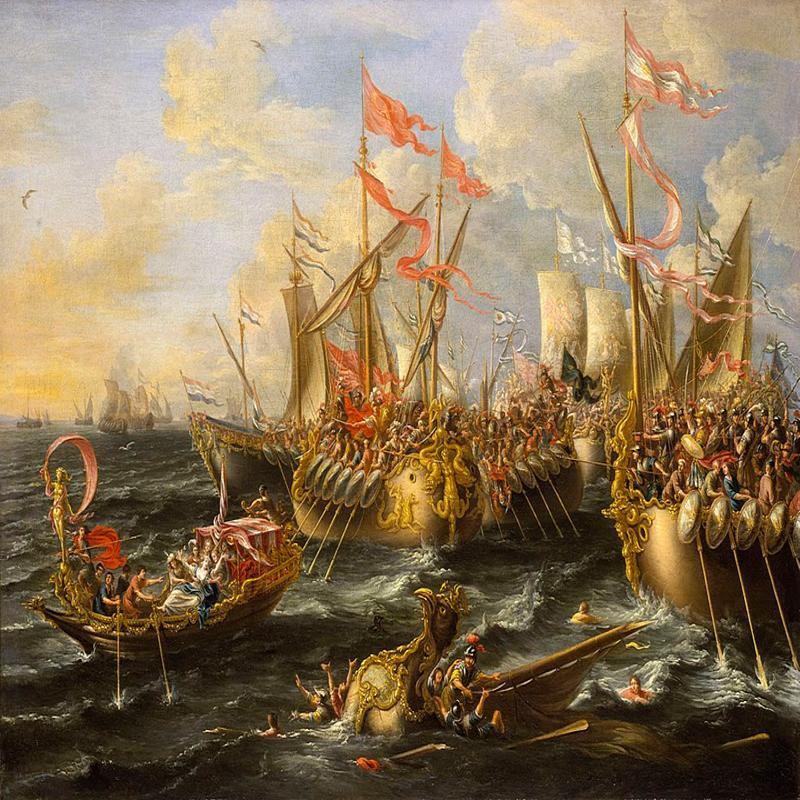
On 2 September 31 BC, the forces of Octavian under the command of his close friend Marcus Vipsanius Agrippa defeated Mark Antony and Cleopatra at the Battle of Actium. A year later 30 August 30 BC, Antony committed suicide in Alexandria with Cleopatra doing likewise not long after.
Octavian returned to Rome and quickly set about consolidating his power. He trod carefully and paid lip-service to the notion of the Republic, but he had no intention of handing the power he had fought so hard to acquire back to an assembly of rich old men and through a clever process of playing the reluctant hero, bribery and implied threat he achieved all that he had been seeking.
In 27 BC a Senate, grateful for the peace he had brought to Rome after so many years of war bestowed on him the title - Augustus Caesar. He feigned reluctance to accept but he did, and the newly crowned Augustus was determined to re-make Rome in his own image - it was the beginning of the Roman Empire.
He and his family would set the standard by which all Rome should live. He resided modestly in his villa on the Palatine Hill eating frugally and drinking only in moderation. He praised the fidelity of Roman womanhood while passing laws in favour of marriage and making divorce more difficult. In his mission to improve the morals of the ordinary Roman citizen he had a willing accomplice in his wife. Livia too dressed modestly, disavowed the wearing of jewellery and it was even said that she made the Emperor’s clothes for him. She also ruled the Imperial household with a rod of iron and if Augustus governed an Empire few could doubt who governed the home.
Besides taking up many official duties such as sealing documents, greeting foreign emissaries, addressing women's meetings and involving herself with the affairs of the Vestal Virgins she also unburdened Augustus of the more onerous tasks such as firing officials, allocating posts, reading audits and dealing with complaints. It was a happy marriage and a good working partnership but all was not as it seemed. Augustus was both vain in the extreme and a serial philanderer.
He was not a physically impressive man being pasty-faced, short and pitifully thin so he took measures to make it appear that he was more than the sum of his parts - he would rouge his cheeks, wear platform shoes and don extra layers of clothing to provide more bulk. Neither was he a man of action and rather than confront an opponent he would seek to humiliate them and many a Senator he considered a threat were forced to consent to him sleeping with their wives.
He also had many vices he was aroused by flagellation, took delight in anal sex, had a passion for young virgins and gambled heavily. But he was always careful to ensure that his errant behaviour remained a secret from the Roman people and Livia was complicit in maintaining the Augustan myth of the well-ordered family. She was it seems a willing partner in his nocturnal pursuits both physically compliant and in procuring for him a stream of young lovers. By doing so she maintained control both inside and outside of the bedroom, of his mind and of his heart.
As the historian Suetonius would later remark she was the only woman he loved until his death and even as his final moments approached, he would say – Livia, be mindful of our marriage. Once when asked how she managed to wield such power over the Emperor she replied: "To him I remain chaste and do whatever he asks of me. I also turn a blind eye to many of his passions."
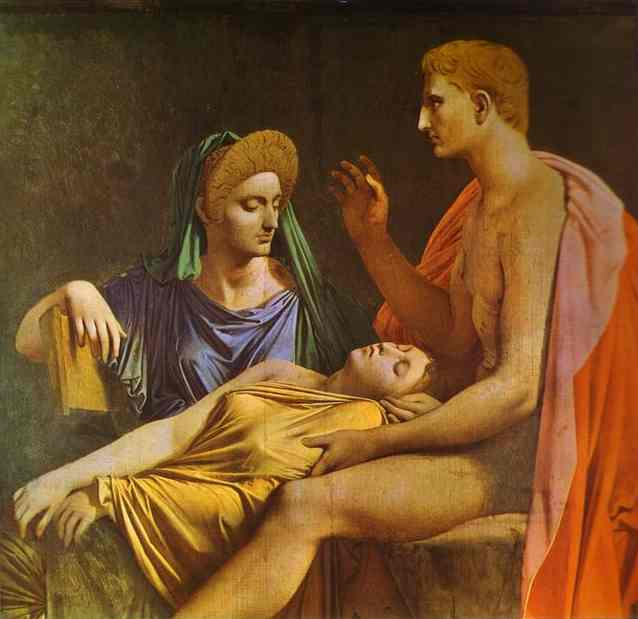
She had long been aware of her husband's infidelities, but these were less important to her than her own public image. As far as the people of Rome were concerned, she would always be the ideal Roman woman. Once she was confronted by some naked men who fearing that their immodesty would cost them their lives threw themselves at her feet begging for her mercy. She saved them from further punishment by simply remarking that to a chaste woman such men were but statues.
As time went on Augustus came to rely more and more upon his wife. In many ways she was the only person he truly trusted and they governed the Roman Empire as effective co-rulers. She had use of the Emperor's personal seal, she made appointments, conversed with foreign dignitaries, dealt with the affairs of religion and ran the city in Augustus's absence. Only in military affairs was she excluded from the decision-making process. They were to be married for 51 years and at no time did Augustus ever consider divorcing her even though she bore him no children. They were to rule over the most prosperous period in Roman history and were the perfect working partnership, but Livia also had ambitions of her own.
Augustus had no direct heir and as such she was determined that one of her sons either Tiberius or Drusus would succeed him. Augustus however, had already nominated his nephew, Marcellus. When this seemingly healthy and robust young man inexplicably succumbed to food poisoning Augustus was bereft but instead of alighting upon Livia's children for his chosen successor he looked instead towards the sons of his daughter, Julia.
Livia was furious that despite her best efforts to promote them both Tiberius and Drusus remained far down the pecking order. There was it seemed, still much work to be done.
Julia had been married aged 18, to Augustus's oldest friend Marcus Vipsanius Agrippa. It was a difficult marriage choice not only because Agrippa was 25 years Julia's senior but also because he was of low birth. Augustus had at first refused Agrippa’s marriage proposal, but it was on the advice of another old friend Macaenas who told him, “You have made him so great that he must either be your son-in-law or be slain," that he changed his mind.
It appears to have been happy union for Julia was to have four children by Agrippa, three boys, Lucius, Gaius and Postumus, and a girl, Agrippina. All three boys would now be next in the line of succession before either of Livia's children would even be considered.
When Agrippa died unexpectedly in 12 BC, Augustus adopted the two oldest boys and began grooming them for power. In the meantime, the freshly widowed Julia set her eyes upon her stepbrother Tiberius for whom she had always had a passion and suggested that they should marry. Livia was certainly not averse to her son marrying directly into the Imperial Family and petitioned her husband to grant the request.
Tiberius, however, was no longer the man that Julia remembered from their childhood together. He had always had a brooding personality, but he had since become surly. Also, his sexual proclivities went some way beyond the parameters of his marriage vows. In no time at all they learned to loathe one another. Tiberius never forgave her for being the cause of his having to divorce the woman he loved, and Julia never forgave his lack of sexual interest in her - the marriage was a disaster.
Julia was also no friend of Livia's who she thought overbearing, condescending and manipulative. Livia on her part saw Julia as a bar to her ambitions. When in 2 BC, Julia became embroiled in a sexual scandal Livia exploited it mercilessly.
It had been revealed, by whom we do not know that Julia had been sleeping around. Not just with Senators and Roman citizens but with slaves and even Gladiators. That she had in fact been behaving like a common whore. Augustus was furious, for years he had promoted family values and carefully cultivated the image of the Imperial Family as chaste and frugal in all things, now this! Julia was arrested on charges of adultery and treason.
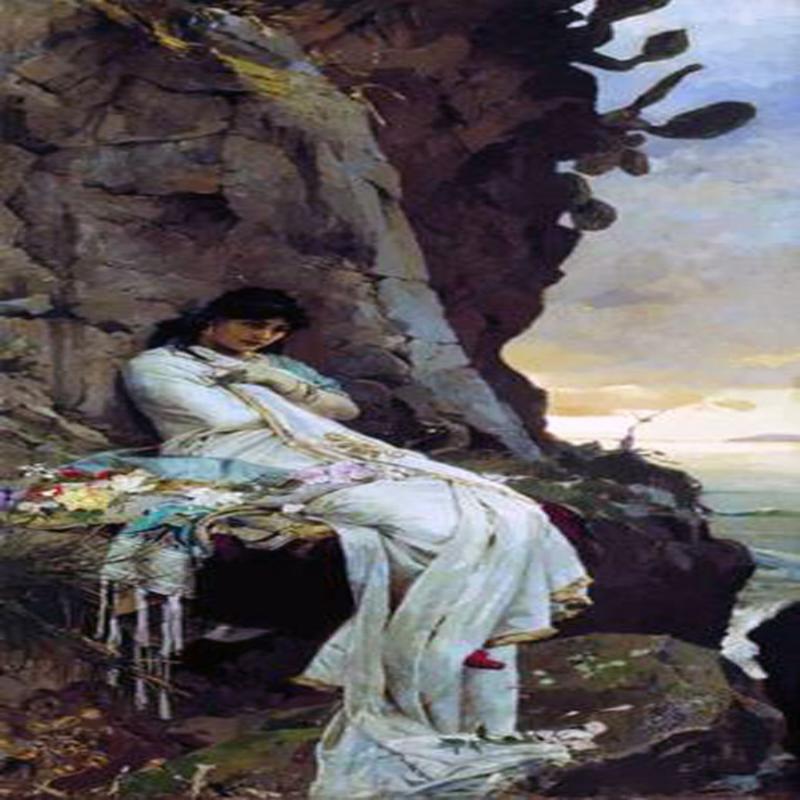
Despite the promptings of Livia, Augustus remained disinclined to execute his own daughter and instead banished her, but it was to be a harsh banishment. She was exiled to the Island of Pandeteria which was little more than a mile in circumference where she was denied wine and any male company. Her mother Scribonia was banished alongside with her for having given birth to such a whore.
Julia was permitted to return to Italy five years later but barred from ever leaving the region of Reggio di Calabria. She never saw Rome or her father again and was probably starved to death on the orders of Tiberius after he became Emperor.
Not long after Julia's banishment her two young sons Lucius and Gaius both died in mysterious circumstances. This left just Postumus as Augustus's heir apparent.
Arrogant, rude and often drunk he was not a popular young man but as the third son little had been expected of him other than perhaps a career in the army and the prerequisite that he behave responsibly. He had delivered on neither and instead had proceeded to whore his way around the city and offend almost everyone he encountered. Nonetheless, following the death of his brothers Augustus had in 4 AD, adopted him as his son and legitimate heir. He had also on the insistence of Livia who worried, she said, who would succeed him if anything happened to Postumus, adopted Tiberius.
In AD 9, Postumus was accused of trying to rape his cousin, Livilla. Given his reputation people were only too willing to believe the accusation and certainly, prompted by Livia, Augustus did. The 23-year-old Postumus was banished to the tiny Island of Planasia where he was kept under constant guard.
The last ten years of Augustus's life were not happy. He was an old man saddened by the death and banishment of his family who suffered badly from the cold and wandered the corridors of the Imperial Palace alone at night unable to sleep. He was also deaf to the rumours sweeping the Royal Court that his wife Livia had in some way been responsible for the ill-fortune that had so plagued the Imperial Family. He ignored the gossip whispered in quiet corners that his wife had an unhealthy interest in poison and was determined that her son and no one else would succeed to the Imperial throne.
On 19 August AD 14, the Emperor Augustus died aged 78, his last words: "I found Rome of clay and leave her to you of marble; then if I have played my part well so applaud my exit." It was true, but he had not done so alone.

Upon his death the Senate summoned Tiberius and offered him the Imperial Purple. Initially he refused it, but this was only a ploy to make the Senate come back to him and beg for his acceptance, this time he agreed. Three days after becoming Emperor he had Postumus killed.
In his Will Augustus had Livia adopted into the Julian Clan, left her a third of his personal fortune and provided her with the honorific title of Augusta. This guaranteed her patrician status and made her almost untouchable.
To quash the rumours by now rife that she had been responsible not only for deaths within the Imperial Family but even that of the Emperor himself, Tiberius made any future public criticism of her a treasonable and thereby capital offence.
Livia was determined to rule alongside her son as she had her husband and for a time this seemed to work quite well but the always broody and ill-tempered Tiberius soon grew resentful at his mother's constant meddling especially as whenever they disagreed on an issue Livia would quickly reproach him with the words: "Were it not for me you would never have become Emperor."
Over the next few years their mutual loathing for one another just grew and grew. When the Senate proposed a motion to make Livia, Mater Patriae (Mother of the Nation) Tiberius vetoed it.
In AD 26, Tiberius retired to the Island of Capri, it was said to get away from his domineering mother though it was more to do with being able to pursue his increasingly perverted sexual desires away from the public gaze. In his absence effective power in Rome fell to the Commander of the Praetorian Guard Aelius Sejanus and as a result Livia's influence waned. She still remained the Matron par excellence, but she no longer had control over the Imperial seal.
In AD 29, aged 86, Livia Drusilla Augustus Augusta, Empress of Rome, died. She had dominated Roman life for more than 60 years and tears were wept openly on the streets at her passing, shops were closed and even Rome’s infamous entertainments were put on hold as the entire city mourned the loss of its Queen Empress - but not so her son.
Livia's body was preserved for several days in the expectation that Tiberius would be paying his last respects. But there was to be no last farewell from a son to his mother. He did not return and neither did he attend the funeral. In the end her body was buried because of the dire state of the corpse.
Thirteen years later her nephew, the Emperor Claudius, had her declared a God.
It was a final and fitting tribute in a deeply patriarchal society to a woman of substance - a recognition that had been denied to her by her own son.
Tagged as: Ancient & Medieval, Women
Share this post:





